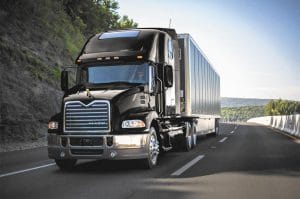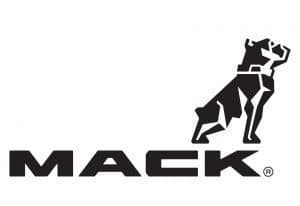Even as it struggles to work out a settlement with General Motors to end a strike now in its fifth week, the United Auto Workers Union ordered 3,600 hourly employees to walk off the job at Mack Trucks over the weekend.
The strike “surprised and disappointed” the truck company, said Mack President Martin Weissburg in a statement in which he insisted that “progress was being made” towards a settlement.
From the union perspective, the walkout reflected a demand for “fair pay and benefits,” Ray Curry, the UAW’s director of its Heavy Truck Department, countering in his own statement that, “UAW members carry on their shoulders the profits of Mack and they are simply asking for dignity, fair pay and job protections.”
(No movement during weekend as GM strike drags into fifth week.)
The strike impacts workers at six Mack plants in Florida, Maryland and Pennsylvania. Like the 46,000 employees at GM who set up picket lines nearly a month ago, the truck workers will receive $275 a week in strike pay.
A subsidiary of Swedish truck company AB Volvo, Mack is the sixth-largest heavy truck manufacturer in the U.S., its 7.4% market share lagging just behind its Swedish parents, Volvo Trucks holding a 10.7% share in 2018. Mack had a solid year in 2018, with orders jumping about 20 percent. Demand has been dipping this year, along with the rest of the heavy truck industry. Part of that reflects the impact of the Trump trade battle with China, according to industry analysts. Revenues this year are expected to top $500 million, according to tracking firm Inc Fact.
According to the union, a laundry list of issues were left unresolved when Mack workers walked off the job at 11:59 PM on Saturday, including, ” wage increases, job security, COLA, wage progression, skilled trades, shift premium, holiday schedules, work schedules, health and safety, seniority, pension, 401(k), health care and prescription drug coverage, overtime, subcontracting and temporary and supplemental workers.”
At the moment, the UAW is now facing confrontations on three separate fronts. Along with the Mack strike, there are actually two separate strikes at General Motors. The first began on September 15th and involves 850 maintenance workers supplied to GM plants in Michigan and Ohio by Aramark. The automaker was hit by the second strike 24 hours later, about 46,000 of its direct employees heading to picket lines.
(GM Sends Latest Offer Directly to Employees, Ups Investment to $9 Billion)
Officials with GM and the UAW have traded a number of shots over the past week and, in an unusual move, both have not only made offers and counter-offers but also made some of the proposed contract details public.
The issues dividing the two sides are extensive and include not only pay and benefits such as health care, but job security and the ongoing use of contract employees. The confrontation is complicated by a variety of factors, including GM’s strong profits, as well as its plan to close a number of underutilized plants. Labor analysts also say that union officials are feeling pressure to prove to workers they’ll get the best possible deal in light of an ongoing corruption scandal that showed some UAW managers had been paid off during prior negotiations.
The union faces the possibility of further revelations, the FBI having raided the homes of a number of top UAW officials in August, including those of both its current and immediate past presidents.
(Here’s how the UAW strike at GM could impact consumers.)
Maintaining three strikes simultaneously will put pressure on both union leaders and on the UAW’s strike fund, though it reportedly had a balance of around $800 million going into the current season of strikes. Barring the sort of historic walkout seen in decades past, analysts say the union should be able to cover benefits for quite some time.
But there could yet be other problems. Once they come up with a settlement at GM, the UAW will need to reach deals with Ford and Fiat Chrysler. The likelihood of confrontations there appear to be lower, however, said Arthur Schwartz, a former General Motors labor negotiator who now serves as a consultant on union-management relations.
As for Mack, while Curry cautioned that while “our members are united in standing together to strike until Mack agrees to resolve these significant issues,” he is confident the two sides will soon be able to reach a settlement.




GM must be stupid. They should be ending strikes not starting new ones. Wish these companies would fire the strikers and hire workers that really want to work
Conditions in an modern day automotive assembly plant are tough at best, impossible at the worst! Line speed, multi-ton presses, sharp edges and the monotony of the work is just some of the issues. Management and labor are naturally at odds even during the best of times. For example: management wants lower unit costs, lower head count, fast line speeds and higher quality. Meanwhile, labor wants a reasonable line speed for worker safety – fewer injuries, fewer accidents, not to mention bathroom and lunch breaks. I have been in a number of automotive factories in my life – and not during some “guided tour”. I have yet to see any workers – foreign or domestic automakers – that weren’t working hard. Now having said that, are there abuses? Sure – both management and labor. But don’t get their right to bargain (and strikes are a legal tool in their arsenal) with their desire to work.